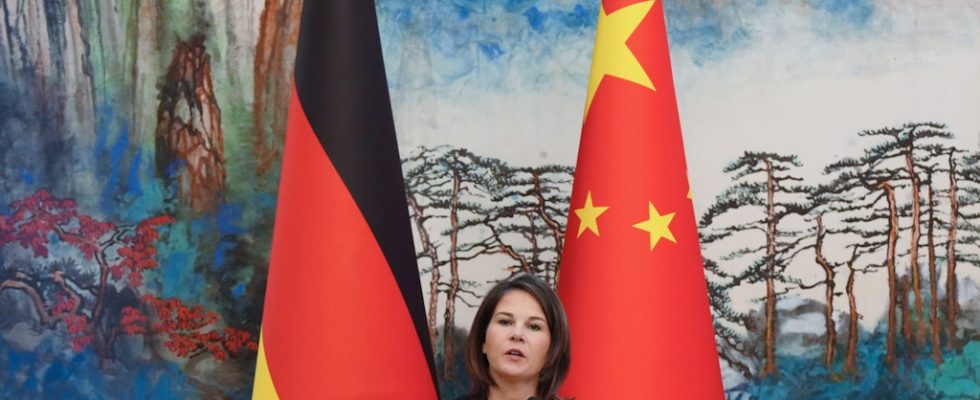Out of anger over statements made by Foreign Minister Annalena Baerbock (Greens), the Chinese government summoned the German ambassador. A spokesman for the Foreign Office announced this in Berlin on Monday.
Ambassador Patricia Flor was summoned in connection with the fact that Baerbock had described Chinese President Xi Jinping as a “dictator”. Mao Ning, a spokesman for the Chinese Foreign Ministry, had previously described the politician’s comments as “extremely absurd.” They violated China’s political dignity.
Baerbock said in an interview with Fox News last week that Germany would support Ukraine for as long as necessary. Then came the statement that led to China’s complaint: “If Putin wins this war, what kind of sign would that be to other dictators in the world? How about Xi, China’s President? That’s why Ukraine must win this war.”
“You are an open political provocation,” Mao said to Baerbock at a press conference, according to Reuters.
Advertisement | Scroll to continue reading
Such an act of diplomatic protest is not unusual in German-Chinese relations. The last time such ambassadors were summoned was on the occasion of Federal Education Minister Bettina Stark-Watzinger’s (FDP) visit to Taiwan in the spring and after a foreign minister’s statement on Taiwan by the G7 group of states in August 2022.
Baerbock only reacts very briefly to the criticism from China. “I have taken note of this,” said the minister on Monday during a visit to New York on the occasion of the UN general debate. She did not want to comment further on the topic.
It is not the first time that Baerbock has caused displeasure in Beijing as Foreign Minister. It was only in April that the Green Party publicly raised the question at a joint press conference with their Chinese counterpart as to why China had not yet called on the “aggressor Russia” to stop the war in Ukraine. Regarding Beijing’s threats against Taiwan, she said that “a unilateral and even more violent change in the status quo” would not be acceptable for Europe.
Baerbock’s diplomatic style not only earned her criticism from China’s then Foreign Minister Qin Gang, who in turn emphasized that there was no need for a “teacher from the West.” The conservative wing of their coalition partner SPD also made it clear during Baerbock’s trip to China that they would like more restraint. In a theses paper, the Seeheimer Kreis warned against an “anti-China” strategy.
The comrades were worried at the time about the two most prominent Greens in the cabinet: Baerbock and Robert Habeck. “The leaders of the Foreign Office and the Federal Ministry of Economics are currently moving from individual case to individual case,” the paper says. “The focus there is more on the domestic symbolic power of measures taken than on far-sighted policies.”
You had to understand it like this at the time: Baerbock and Habeck were impetuously attacking Beijing in order to shine at home – and in doing so disrupted relations with the Federal Republic’s most important trading partner.
In the meantime, after months of negotiations, the federal government has agreed on a common China strategy. But this obviously doesn’t change Baerbock’s tone towards the People’s Republic – which is unlikely to be met with enthusiasm by the conservative SPD wing. (with AFP)

